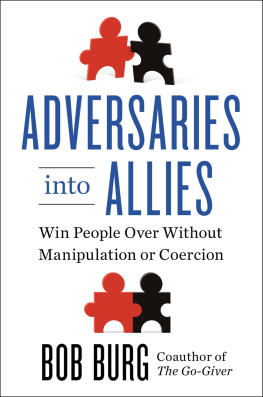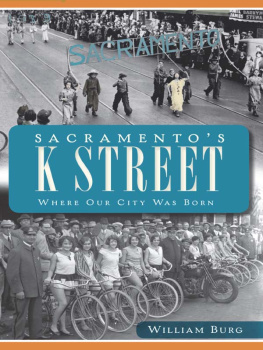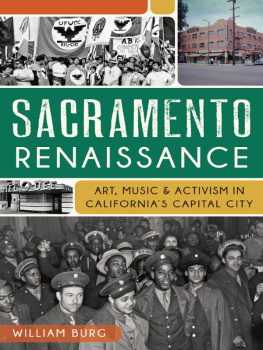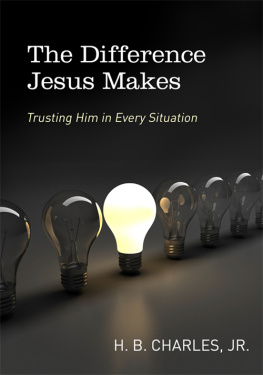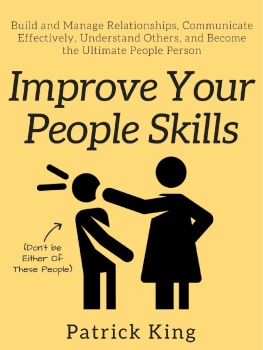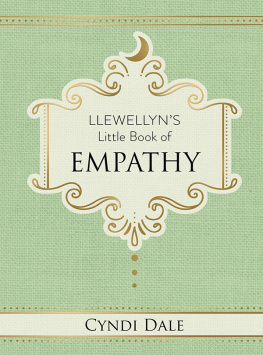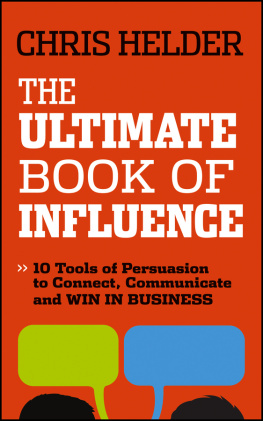The author feels very strongly regarding the utilization of gender equality in his writing. The pronouns his and her, he and she, et cetera, have been used interchangeably and randomly throughout the text.
INTRODUCTION
Who is Mighty? Those who can control their own emotions and make of an enemy a friend.
Talmud, Pirkei Avos (Wisdom of the Fathers)
Y ou can have practically every positive trait working for youyou can be talented, of high character, ambitious, kind, charitable, hardworking, thrifty, and energetic. You can have a knack for numbers and a head for business, you can be even-tempered, creative, et cetera.
However...
Unless you are able to influence the way others think and act, your chances for success in any aspect of your life are limited.
No, this has nothing to do with manipulating others. It does mean that with both benevolent intent and ability you can consistently obtain both personal and business satisfaction while making others lives significantly better.
I call this Ultimate Influence: the ability to get the results you want from others while making them feel genuinely good about themselves, about the process, and about you.
Were about to take a journey that will include five immediately actionable principles to make your life more fun, less stressful, and a lot more profitable! And as you do this, youll become better liked and more respected, and youll know that youve made a terrific, positive difference in your world.
As the opening quote describes, only when you can subdue your own emotions are you in a position of true strength, of true influence. Indeed, you are then so powerful you can transform a potentially negative situation into a win for all involved.
While there is certainly more to Ultimate Influence than simply controlling your emotions, it begins there.
The dictionary defines adversary as a person, group, or force that opposes or attacks; opponent; enemy; foe. But when I use the term adversaries in the title of this book, I am not talking about actual enemies. And, you might not like to think of people who are not immediately on your side as adversaries. Thats fair.
I dont take the word adversary in the literal sense, but use the term to refer to those whoregardless of their intentionsstand in the way of our personal satisfaction. They are a part of our learning processnot negative figures, but necessary ones. Just as the great Japanese home-run hitter Sadaharu Oh viewed opposing pitchers as his partners in hitting home runs, I see adversaries as our partners in growth and successand as people we can turn into allies for mutual gain.
These partners take different forms, playing a part in many of lifes different situations. They range from family members to well-intentioned friends, and can include coworkers, employees, supervisors, employers, team members, committee members, salespeople, prospects, customers, clients, bureaucrats, customer service representatives, and many, many others.
People can be difficult, or adversarial. Sometimes you need to find a win/win solution to dealing with a person you already know is difficult. Other times its important to make sure that a potentially difficult person doesnt become an adversary in the first place. This book will help you do both.
After seeing the title, some early readers asked if this is a book about negotiation. Only in the sense that we negotiate our way through everything in life in one way or another. So while it is not about the topic of negotiation or about specific negotiation skills and tactics, youll find it to be beneficial in all of your dealings with others, including direct negotiations.
Because of my background in sales and teaching selling skills, another excellent question Ive received is, Is this a book on selling? While some of the examples in these pages will deal directly with the selling process, its not a book on selling per se. Again, only in the sense that if we understand that selling is about moving others to accept our ideaswhether were deciding which movie to see with a friend, selling our product to a new prospect, or trying to get better service from a difficult repwe are selling on a constant basis.
So, what is this book really about?
Adversaries into Allies is about mastering one specific area of success. Its one that has proven itself again and again to be the determining factor between the average or reasonably successful person and the one who is able to accomplish great and significant levels of achievement. And that is people skills.
Indeed, there are certainly those whove attained great financial success despite their lack of people skills. But theyve achieved what they have in spite of this, not because of it. For many of these people, their personal relationships were and are a mess. Still, because of some other powerful qualities, they have achievedat least financiallysome huge success. Even though such examples are rare, they do happen.
Most of us, on the other hand, need very powerful people skills to succeed not only in business but in all areas of life.
I believe that success in life is based on 10 percent technical skills and 90 percent people skills.
Of course, technical skills are hugely important. Talent counts; ability counts; competence counts. However, they are simply the baselinethey get you into the game. Some of the most talented people in the world accomplish very average results because they have not mastered the people skills and influence skills that elicit the necessary action, buy in, or commitment from others.
How much more effective do you feel you would be with peoplewhether theyre friends or loved ones, colleagues or customersif you mastered Ultimate Influence?

